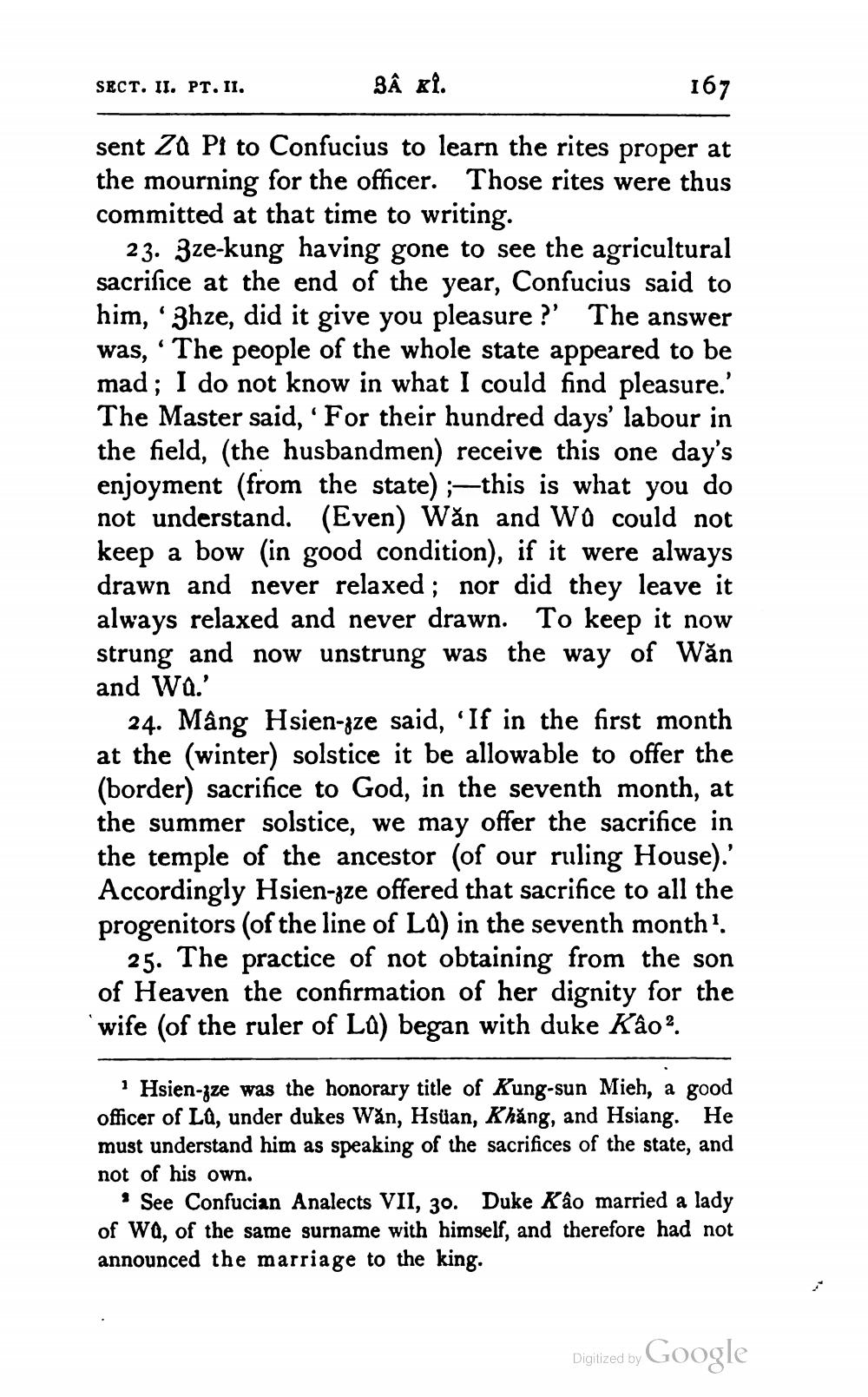________________
3â ki.
167
sent Zu Pi to Confucius to learn the rites proper at the mourning for the officer. Those rites were thus committed at that time to writing.
SECT. II. PT. II.
23. 3ze-kung having gone to see the agricultural sacrifice at the end of the year, Confucius said to him, '3hze, did it give you pleasure?' The answer was, 'The people of the whole state appeared to be mad; I do not know in what I could find pleasure.' The Master said, 'For their hundred days' labour in the field, (the husbandmen) receive this one day's enjoyment (from the state);—this is what you do not understand. (Even) Wăn and Wû could not keep a bow (in good condition), if it were always drawn and never relaxed; nor did they leave it always relaxed and never drawn. To keep it now strung and now unstrung was the way of Wăn and Wû.'
24. Mâng Hsien-ze said, 'If in the first month at the (winter) solstice it be allowable to offer the (border) sacrifice to God, in the seventh month, at the summer solstice, we may offer the sacrifice in the temple of the ancestor (of our ruling House).' Accordingly Hsien-ze offered that sacrifice to all the progenitors (of the line of Lu) in the seventh month1.
25. The practice of not obtaining from the son of Heaven the confirmation of her dignity for the wife (of the ruler of Lû) began with duke Kâo2.
1 Hsien-zze was the honorary title of Kung-sun Mieh, a good officer of Lû, under dukes Wăn, Hsuan, Khăng, and Hsiang. He must understand him as speaking of the sacrifices of the state, and not of his own.
See Confucian Analects VII, 30. Duke Kâo married a lady of Wa, of the same surname with himself, and therefore had not announced the marriage to the king.
Digitized by
Google




